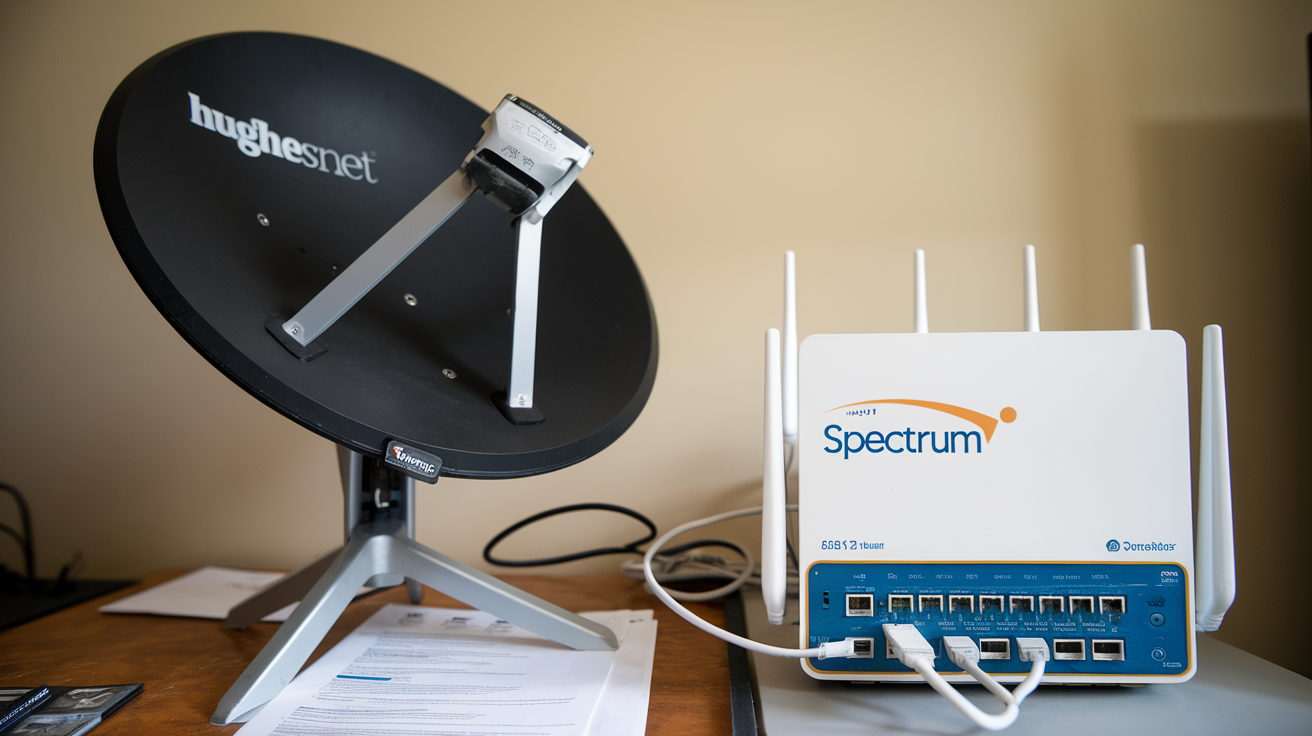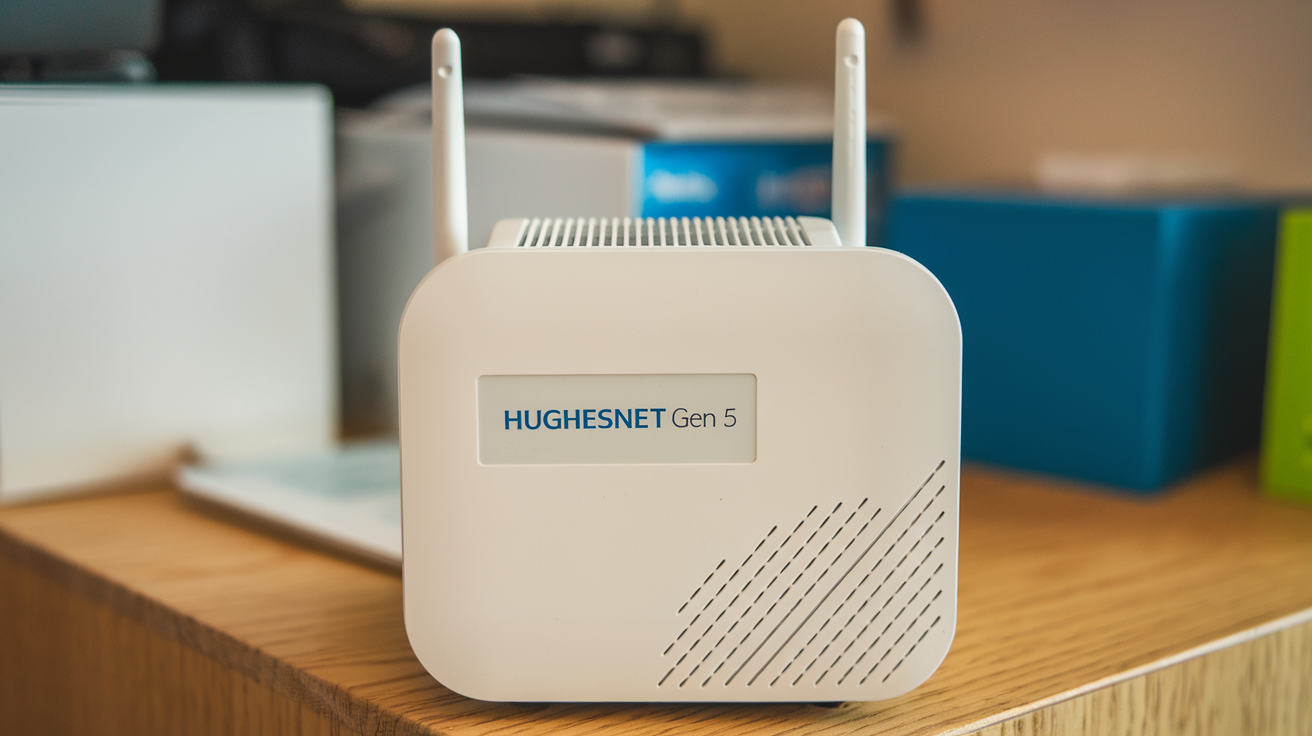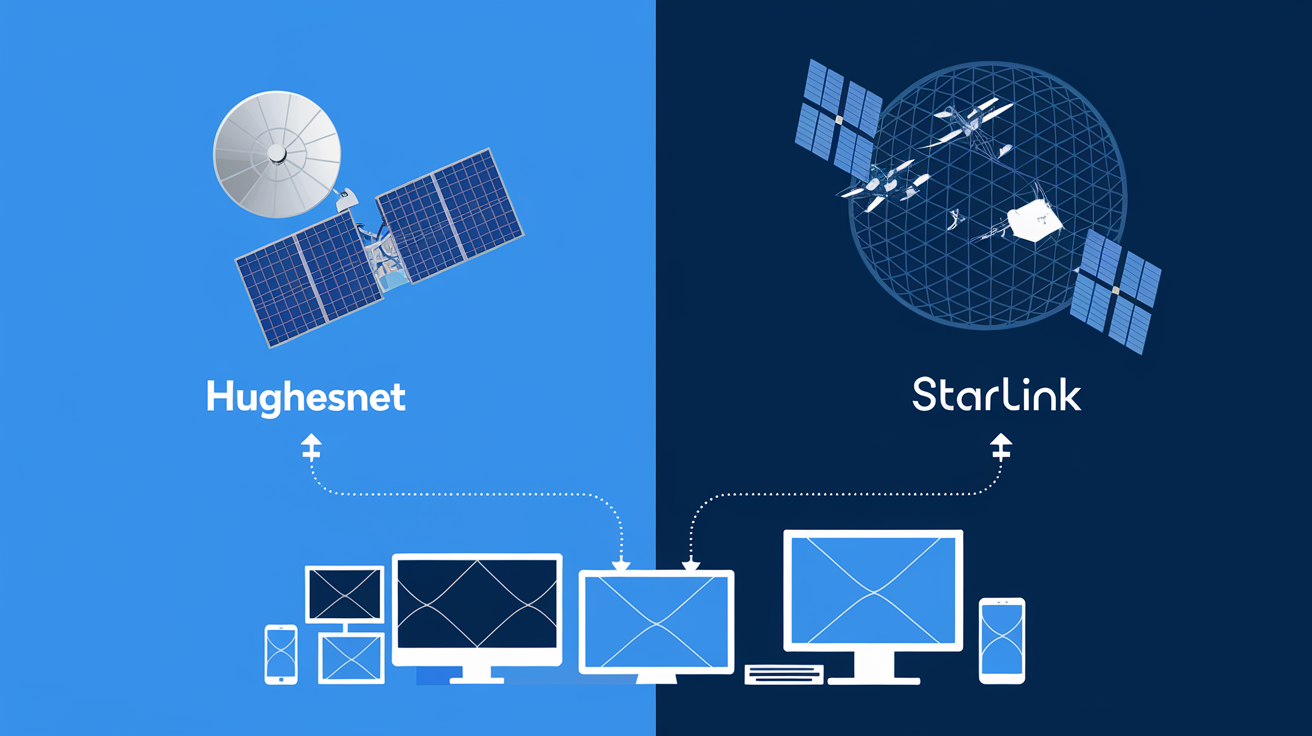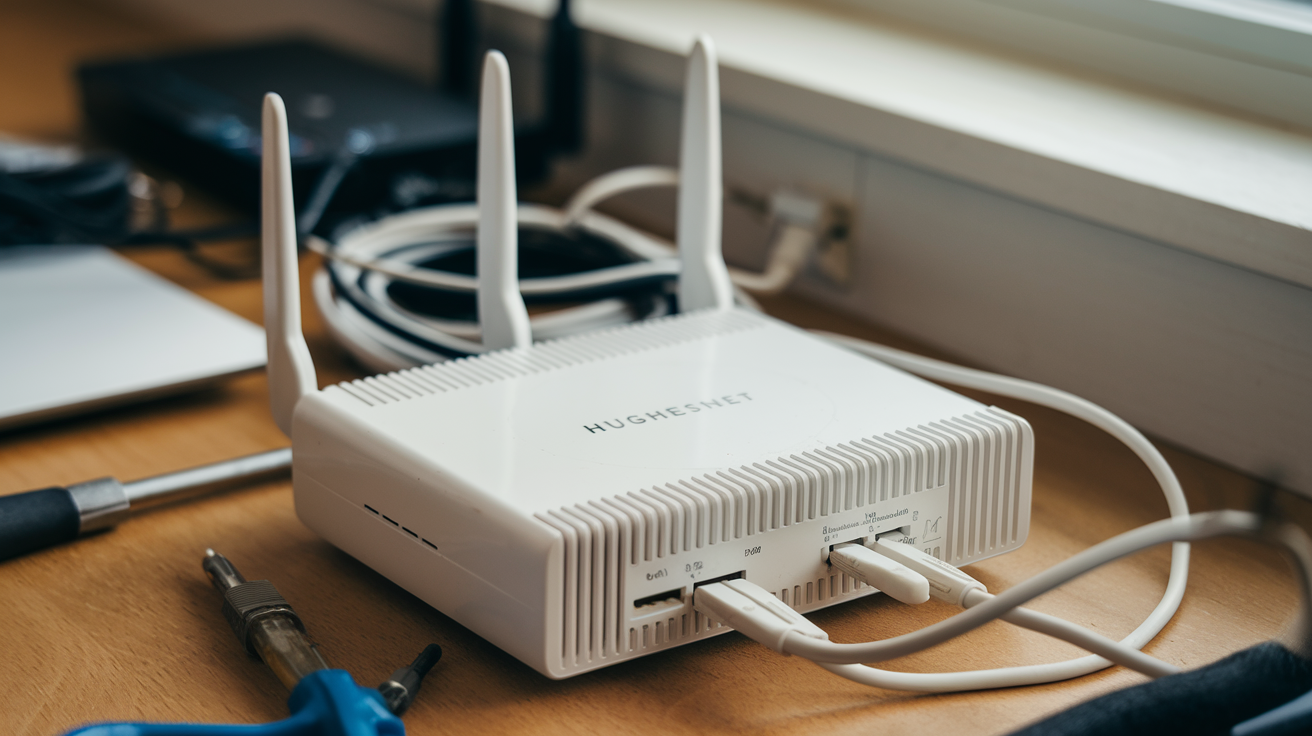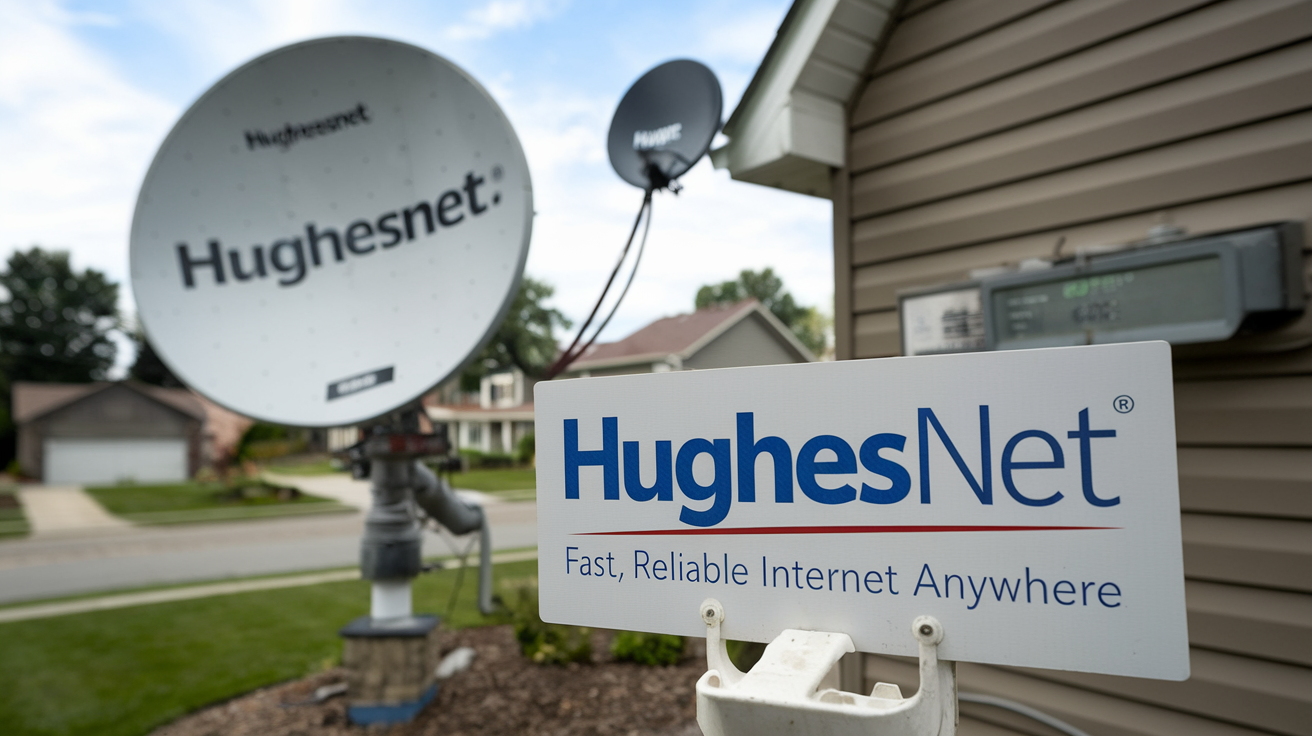-
Posted on: 08 Aug 2024

-
HughesNet internet service – is this provider good for home Internet users?
With COVID-19 continuing its spread and affecting millions of people across the world, and with offices, classes, and other educational establishments being closed, having a stable internet connection at home is a must. For individuals who live in rural area that has no access to cable or fiber broadband connections, the available satellite internet, such as HughesNet, is a true option. However, is HughesNet going to be a great option for your home Internet connection? Below are arguments for and against:
Speeds
HughesNet provides the download service at 25Mbps for all its plans, while the upload speeds are between 3 and 5 Mbps, depending on the customers’ plan. These speeds are suitable for simple usage such as email, browsing the internet, video calling, and low-quality video streaming. But they will not be swift enough for a house that has many users of internet users, especially in the evening. Imagine five or more people using their devices to stream high-definition videos; this could almost bring internet speed to a virtual halt. To some hailing from rural areas, used to even slower DSL or dial-up speeds, though, HughesNet speeds can feel like a much-needed improvement.
That is why speeds are affected by HughesNet’s restrictions on data usage and the use of throttling. They all restrict your usage to a specific amount of high-speed data per month, and once you exceed that, you’re left with speeds slower than a dial-up connection (sometimes even below 1 Mbps) until the next month. Their most expensive plan comes with 150 GB before the speed is reduced, which may sound quite generous until a few movies from Netflix are streamed, and lots of data is consumed almost instantaneously. Heavy users may be limited to unacceptably slow speeds that are below the minimum requirement level for more than half of each month.
Reliability
Similar to most satellite internet service providers, HughesNet’s connectivity may be disrupted momentarily due to adverse weather conditions, which may affect signals between their satellites in orbit and home gear. Such outages normally last a few seconds or minutes during stormy weather only, but to homes with backup generators, they will take a lot more than that to notice the absence of power. Unlike other satellite internet service providers who may employ old and low-capacity satellites, HughesNet employs newer high-capacity satellites and also makes use of advanced networking protocols, which they employ to try and ensure that disruption is kept as low as possible. However, any form of weather, like heavy rain, snow, or wind, could disrupt connectivity, and that is why public Wi-Fi is not always a good option for using the internet. It is more frequently observed in areas that experience vernal and autumnal equinoxes with frequent occurrences of tropical cyclones.
It can also affect HughesNet’s real-world dependability and uniformity in the actual performance of its services. It has been highlighted that signals need to cover more than 44,000 miles to reach orbiting satellites and return, which causes high latency or lag as compared to terrestrial broadband networks. It hinders such processes as video conferencing and gaming. HughesNet has a life expectancy of 600-700ms ping, while cable and fiber networks are less than 100ms. These delays could interfere with application and operation, as well as appear slow for the real-time use of the internet.
Cost
HughesNet pricing is slightly higher compared to other satellite internet services, though it is a bit lower compared to other alternative services. Their least expensive plan begins at $59. 99 per month, and the plan with the fastest connections and largest data allowances costs $149. 99 per month. You also require satellite equipment, which is relatively costly and can only be installed by professionals on your property, ranging from $299 to $499. Additional charges such as activation fees, rental of equipment, data charges in case the set limit is exceeded, shipping costs, and the penalties of canceling contracts before the stipulated time also distort the costs. In terms of pricing, the total charges for HughesNet typically fall within the range of $60 and $150 per month, depending on the signup promotions.
Compared to cable or fiber offers in urban or suburban areas, HughesNet does not offer much. However, many of the rural users appreciate and are ready to pay a premium for satellite as this is their only available choice besides dial-up. Check if other rural internet options, such as Viasat or fixed wireless internet service providers, may be available in your area before you decide to go for HughesNet. That is where their speeds and data allowances stand today are now competitive with HughesNet in many regions.
You should ideally try to afford the more costly tiers of HughesNet because the low tiers often offer extremely slow connections or data limits that offset any advantages of a faster connection. Paying for internet that costs more can relieve some of the annoyance, but does not get rid of others, such as the higher latency that is inherent in satellite internet.
Ease of Use
Reliability and ease of use: HughesNet has been applauded for what customers consider simple and convenient to use after installation. Their modem also has a web interface for controlling usage and settings of the network, diagnosing problems with the connection that occur from time to time, as well as being able to send messages to their customer support team if necessary. The support provided includes live chat help, forum support, email ticketing, and telephone assistance available around the clock.
As for the installation, it does involve hiring a professional technician who will install and calibrate your satellite dish correctly. This normally takes 2-4 hours with an appointment arranged within 1 to 2 weeks after signing up with the service. Besides that, the installation technician will help to activate and configure your HughesNet modem and router at the time of the appointment. HughesNet equipment easily integrates with other devices in use after the initiation of the system.
However, if one wants Internet access for the time being until installation, one is in luck, HughesNet presents an option known as the ‘HughesNet Voice Modem’. This mode, which the customer installs by himself and is supported by the EchoStar satellite network, gives only 5 Mbps speed for web browsing, e-mail, and VoIP phone service… It has no built-in capability for streaming a video or downloading music. The voice modem allows rural residents an internet connection for a few weeks more while waiting for their main HughesNet dish and full activation.
Pros and Cons Summary
Here are the main pros and cons of HughesNet satellite internet:
Pros
- Accessible to all citizens and can be made available to users in rural areas within the country.
- Download speeds of 25 Mbps or more are faster compared to the older satellite or DSL networks.
- It offers 150 GB data plans, which are available (however, they require more money).
- Dependable reliability during ordinary conditions, but not during extreme conditions.
- Complimentary installation
- It is easy to use when installed, very flexible, and easy to change settings.
Cons
- Accelerates throttling when the bandwidth excess is consumed
- Not good for use in large organizations or institutions with many individuals who frequently perform complex calculations.
- The said paper also agrees with the fact that P/C broadband infrastructure is more disruptive due to frequent severe weather as compared to physical cables.
- High latency is not desirable for applications that are required to work in real time.
- A long time is required to book a professional installation (Anywhere between two to four weeks).
- High initial expenses for satellites, accessories, and recurring monthly charges
The Verdict
HughesNet is relatively satisfactory when used for minimal to moderate internet use by one or two users, particularly where there are few competitors in rural areas. However, the continuously fluctuating speeds after consuming the data limit to extremely slow speeds, making the performance of the service questionable for households that use the internet moderately. Some customers also complain about issues such as adverse weather conditions, high latency, and longer time taken to install the systems. If you are thinking of locking yourself into an expensive multi-year contract, then review your household’s internet needs and check if there are other dial-up internet providers in your region. For an even better future-proofed internet with better speeds and unlimited data, other internet technologies such as broadband fiber/cable networks are also worth exploring.
FAQs:
1. Is HughesNet a reliable option for home internet?
Yes, HughesNet is generally reliable, especially for rural and remote areas where cable or fiber options are not available. It offers nationwide coverage via satellite, making it a dependable solution where other ISPs may fall short.2. What are HughesNet’s internet speeds like?
HughesNet offers download speeds up to 50 Mbps with upload speeds up to 3 Mbps. While this is sufficient for browsing, email, and video streaming in SD or HD, it's not ideal for activities like online gaming or streaming in 4K.3. Is HughesNet suitable for video streaming and video calls?
Yes, HughesNet can support Netflix, YouTube, and Zoom, though performance may vary depending on weather conditions, network congestion, and data usage. HughesNet's Video Data Saver helps stream efficiently by adjusting resolution automatically.4. Are there data limits with HughesNet plans?
Yes, all HughesNet plans have monthly data allowances (ranging from 15 GB to 200 GB). However, even after you exceed your limit, you won’t be disconnected — you’ll just experience reduced speeds during the rest of the billing cycle.5. Does HughesNet have low latency for real-time activities?
No, latency is one of HughesNet’s downsides. Since it's satellite-based, latency can be around 600 ms, which is not ideal for real-time online gaming or high-speed stock trading.6. Is HughesNet good for working from home?
HughesNet can work for basic remote tasks like emails, VoIP calls, file sharing, and video meetings. But if your job requires constant large file uploads/downloads or real-time software interaction, it may not be the most efficient option.7. How much does HughesNet cost per month?
Monthly plans typically range from $49.99 to $149.99, depending on your data limit and speed. Equipment lease and installation fees may apply as well.8. Can I connect multiple devices to HughesNet Wi-Fi?
Yes, you can connect multiple devices, but performance may drop if several devices are streaming or downloading simultaneously due to bandwidth limits.9. How is HughesNet customer support?
HughesNet offers 24/7 customer service via phone and online chat. While some users report long wait times, many find the support helpful and responsive.10. Who should choose HughesNet for home internet?
HughesNet is best for rural users who don’t have access to fiber or cable and need basic internet access for everyday tasks. It's not recommended for power users or large households with heavy streaming or gaming needs.
